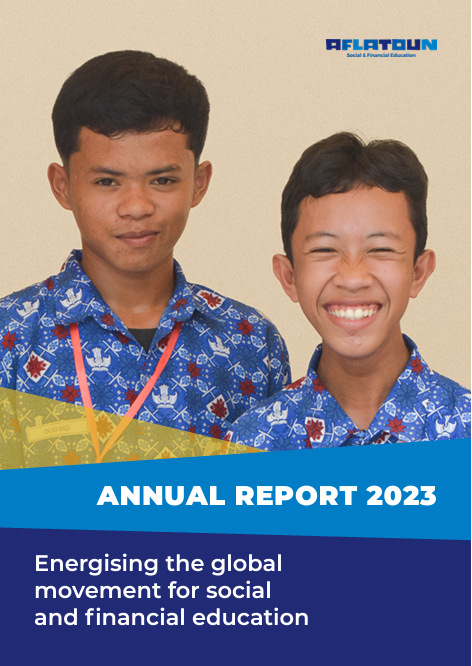Life Vision for Development was founded in 2010 and it operates in Egypt. Its mission is to provide for the poor and oppressed irrespective of their race, religion, gender or political conviction.
The organisation is strengthened by empowering and investing in local capacity building, so long-term solutions can emerge from the community itself. One of its main social missions is to bridge the gap of gender inequity. To do so, the organisation plans vocational trainings in the form of handicraft workshops targeting women (18-45) in Cairo’s, rural areas in Menia and Beni-sweif. In these workshops, participants learn about management techniques and receive business coaching. The dynamic of these workshops is shaped to empower women by having regular discussion groups, imparting basic life skills curriculum or capacity building lessons, providing illustrative drama classes or by engaging in more “learning-by-doing” activities. These interactive activities are key methods that boost the life skills and social resiliency of conflict affected, poor, or oppressed women, who seek personal autonomy and comfortable or even prosperous financial futures.
The handicraft workshops have proven to be a step in the right direction, as participants are actively linked to well-known designers and quality control specialists or other open channels in the local or international market. This continues to increase the visibility of women, making them advance in a competitive job market.
However, Life Vision for Development’s social mission is not only tied to women empowerment as its intersectional work also targets other social causes. Its vocational training also focuses on rights and responsibilities in rural communities, it targets parents with awareness sessions and holds teacher capacity building programmes. Recently, the organisation developed a game to boost students’ interest in financial education. Learn more by watching this video , showcasing how Life Vision for Development sparks the interest of young students through the gamification of financial education.
Our Partnership
As the organisation works to care for vulnerable and excluded social groups, it recognizes the importance of financial education. Alongside Aflatoun, the partnership strives to bridge the gap in knowledge and material missing from national school curricula to empower children by teaching them about how to manage their finances and be able to face the rising costs of living. As of now, Life Vision for Development uses our full range of Aflatot, Aflatoun,, Aflateen, Aflateen+ and Aflayouth curricula.

The organization is excited about the partnership as it believes that ultimately, financial literacy will allow Menia and Beni-sweif, as well as other rural communities to break from cyclical intergenerational poverty.
Luckily, with continued efforts, social education will further allow children and teenagers to feel less bound to daily obstacles and rather motivate students to perceive these as opportunities to save money and face hardships with an entrepreneurial and ecological thinking for sustainable and better futures.
“Now I am proud of who I am”: Ingy’s Story
Ingy is a 14-year-old girl who has a disability due to an accident that happened to her when she was a child. In addition, she also has the Vitiligo condition, which affects her skin. For this reason, Ingy was very isolated due to the bullying and rejection she faces daily from the community around her. This brought her to think less of herself, believing that she was not beautiful and that she would not be able to achieve much in life.
When she first joined the Oasis programme, she started attending Aflatoun classes, but she hesitated to interact or share her thoughts for fear of judgement. However, she soon found acceptance and learnt about rights and responsibilities through the Aflatoun activities., She gradually started to share more of her experiences and her ideas, and to make friends and to realise that she deserves as good an education as her peers. Now, she knows it is her right to live well and get educated, and that she can achieve a lot and build a great future. She now enjoys classes and attends school regularly, excelling in all subjects.











